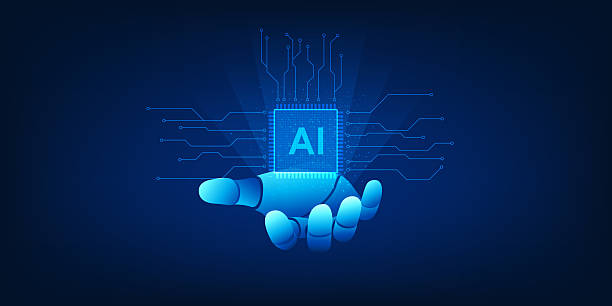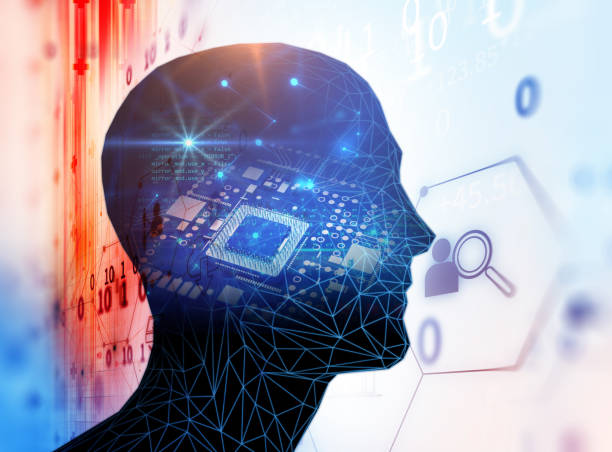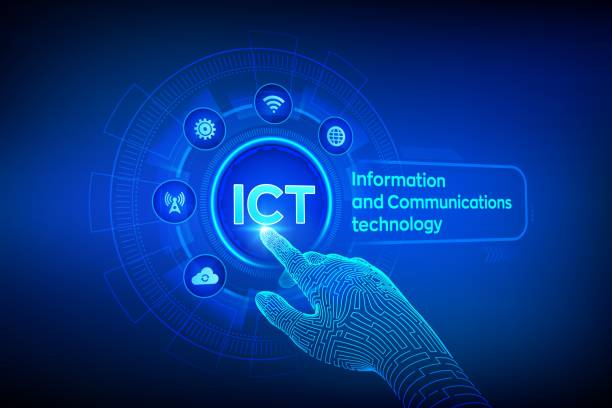Introduction and Basic Definitions of Artificial Intelligence
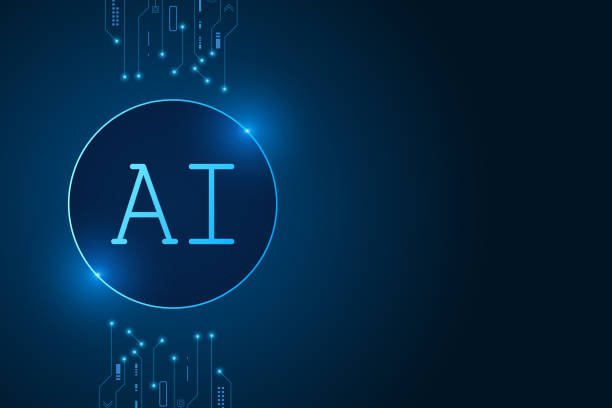
In the current era, the discussion around #FutureOfAIJobs has become one of the hottest and most crucial topics.
Artificial Intelligence (Artificial Intelligence – AI) refers to a set of technologies that enable machines to perform tasks typically requiring human intelligence, such as learning, problem-solving, decision-making, and natural language understanding.
From early expert systems to today’s advanced deep neural networks, AI has come a long way.
This technology is no longer confined to science fiction films; it increasingly permeates our daily lives, from voice assistants and recommendation algorithms to self-driving cars and medical diagnostics.
This widespread penetration raises fundamental questions about the human role in the future job market.
Many worry that machines will replace humans, while others foresee new and endless opportunities.
A thorough examination of this topic requires an analytical and comprehensive approach to view this phenomenon realistically.
Does your current corporate website present a fitting image of your brand and attract new customers?
If not, turn this challenge into an opportunity with Rasaweb’s professional corporate website design services.
✅ Significantly improves your brand’s credibility and image.
✅ Paves the way for attracting new leads and customers for you.
⚡ Contact Rasaweb now for free and expert consultation!
Recent Developments and Expert Predictions
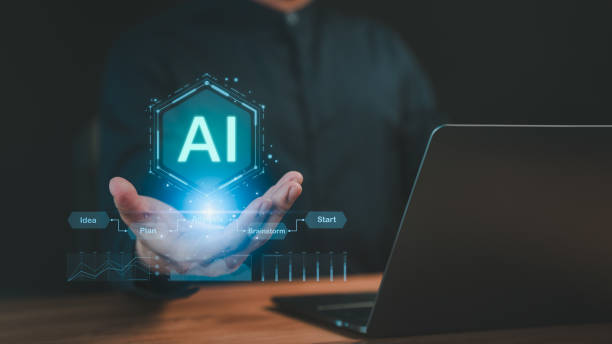
Recent developments in Artificial Intelligence, especially with the advent of Large Language Models (LLMs) and significant advancements in deep learning, have gained unprecedented speed.
These advancements have not only dramatically increased AI capabilities but have also intensified discussions surrounding the future of AI jobs.
Reports from the World Economic Forum and other reputable organizations indicate that while some jobs will be lost due to automation, many new ones will also be created.
Experts predict that AI will not only lead to job displacement but also to the transformation and evolution of the labor market structure.
These changes primarily include an increased demand for hybrid skills, complex analytical abilities, and creativity, which AI cannot easily replicate.
This informative and analytical perspective helps us move away from a purely negative view of this phenomenon and instead seek opportunities and adaptation strategies.
Jobs at Risk and New AI-Driven Jobs
![]()
Understanding how AI impacts jobs requires distinguishing between tasks that are automatable and those that are not.
Jobs involving repetitive, predictable tasks based on structured data are more at risk of automation than others.
For example, some tasks in accounting, manufacturing, customer service, and transportation may gradually be performed by AI systems or robots.
However, as some jobs decline, entirely new fields for AI-based specialties are emerging.
These new jobs not only include AI developers and researchers but also roles such as Prompt Engineer, AI Ethicist, AI User Experience Designer, and Big Data Analyst.
This specialized and guiding perspective can provide a clear path for career choices in the age of AI.
Table 1: Comparison of Jobs at Risk and Emerging AI Jobs
| High-Risk Jobs | Reasons | Emerging Jobs | Role |
|---|---|---|---|
| Data Entry Operators | Repetitive and rule-based tasks | AI Prompt Engineer | Designing optimal inputs for AI models |
| Office Administrators | Managing schedules and organizing documents | AI Ethicist | Ensuring responsible and ethical use of AI |
| Some Customer Service Representatives | Answering routine questions | AI Data Analyst | Interpreting data to improve AI performance |
| Accountants for routine tasks | Simple financial analysis | AI Project Manager | Overseeing the development and implementation of AI projects |
Essential Skills for the Future Job Market
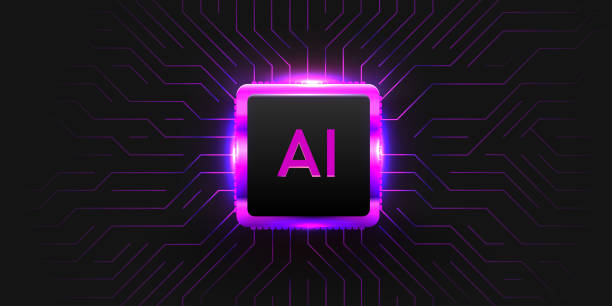
Given the profound changes in the future of AI jobs, developing new skills has become more crucial than ever.
Technical knowledge alone is no longer sufficient; soft skills are also playing a pivotal role.
Skills such as critical thinking, complex problem-solving, creativity, innovation, emotional intelligence, and the ability to collaborate with machines will become significantly more valuable.
Furthermore, a basic understanding of how AI works and the ability to operate AI-based tools will be a foundational skill for many professions.
This means individuals must prepare themselves for lifelong learning and adapting to changes.
Investing in self-education and acquiring future skills is a key guide for success in the AI-transformed job market.
The future of AI jobs means that humans must focus on what machines cannot do: creativity, empathy, and strategic thinking.
Does your current website display your brand’s credibility as it should? Or does it scare away potential customers?
Rasaweb, with years of experience in professional corporate website design, is your comprehensive solution.
✅ A modern, beautiful website tailored to your brand identity
✅ Significantly increasing lead and new customer acquisition
⚡ Contact Rasaweb now for free corporate website design consultation!
The Role of Education in Facing Artificial Intelligence
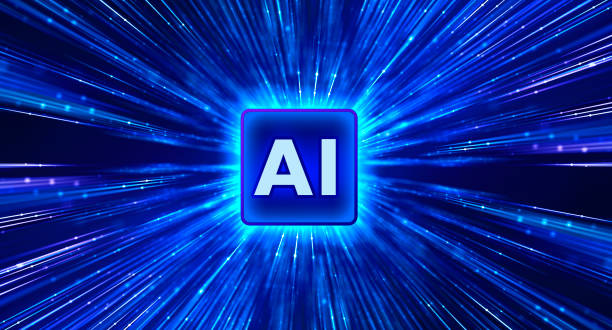
Educational systems worldwide face a significant challenge: how can they prepare the future workforce for a world transformed by AI? The answer lies in a fundamental rethinking of educational approaches.
Education must move away from traditional models based on rote memorization and towards fostering problem-solving skills, critical thinking, digital literacy, and AI literacy.
This means integrating AI concepts into curricula from an early age and providing practical learning opportunities.
Furthermore, universities and higher education institutions must design new majors and courses that meet the needs of emerging AI jobs.
Promoting a culture of lifelong learning is also increasingly important, as individuals must be able to acquire new skills and adapt to technological changes throughout their careers.
This is an educational and explanatory approach that shows only through a dynamic and flexible education system can we tackle the challenges of the future of AI jobs.
Entrepreneurial Opportunities in the Age of AI
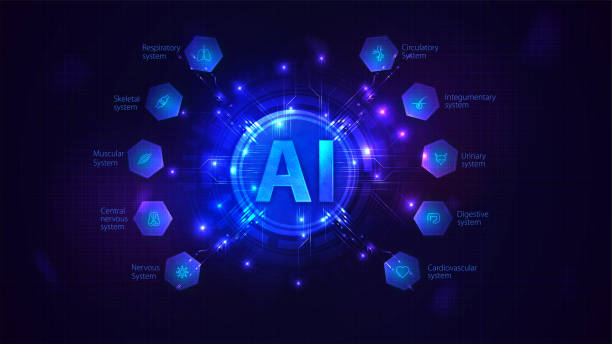
Alongside changes in the traditional labor market, the future of AI jobs offers unparalleled opportunities for entrepreneurship and creating new businesses.
AI can act as an enabler, allowing entrepreneurs to respond to new market needs with innovative solutions.
From startups offering AI platforms to companies using AI to enhance existing services in traditional industries (such as healthcare, agriculture, finance, and logistics), a wide range of opportunities exists.
AI can help entrepreneurs automate business processes, analyze complex data, personalize services, and even create new content.
This era can be very engaging and exciting for individuals with creative thinking, risk-taking abilities, and the capacity to identify market gaps.
AI is not just a tool; it’s a platform for a new generation of innovations and entrepreneurial opportunities.
Challenges and Ethical Considerations
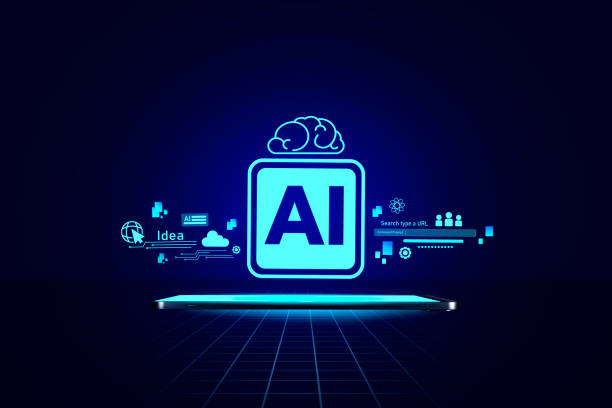
As AI shapes the future of AI jobs, significant challenges and ethical considerations also arise that must be addressed.
Issues such as algorithmic bias, data privacy, accountability in case of errors, and transparency in AI decision-making raise serious concerns.
For example, if an AI system has bias in hiring processes, it can exacerbate existing inequalities.
Or if automated systems perform critical tasks without sufficient oversight, who will be responsible for errors? These are thought-provoking and complex issues that require deep discussion and the development of comprehensive legal and ethical frameworks.
Governments, companies, and civil society organizations must collaborate to ensure that the development and deployment of AI are fair, safe, and aligned with human values.
This analytical dimension of the discussion is crucial to prevent unintended consequences.
Table 2: Key Ethical Considerations in AI and Potential Solutions
| Ethical Consideration | Explanation | Potential Solutions |
|---|---|---|
| Bias and Discrimination | Algorithms may reproduce or exacerbate existing biases in training data. | Careful data review, development of fair algorithms, human oversight. |
| Data Privacy | Collecting and analyzing vast amounts of data may jeopardize individual privacy. | Implementation of strict regulations (e.g., GDPR), encryption, and privacy-enhancing techniques. |
| Accountability | Unclear responsibility in case of errors or problematic decisions made by AI. | Developing legal frameworks, transparency in algorithm performance, human oversight and intervention. |
| Transparency and Explainability | The complexity of some AI systems’ operation (black box) makes understanding their decisions difficult. | Development of Explainable AI (XAI), thorough documentation of processes. |
AI and Human-Machine Collaboration
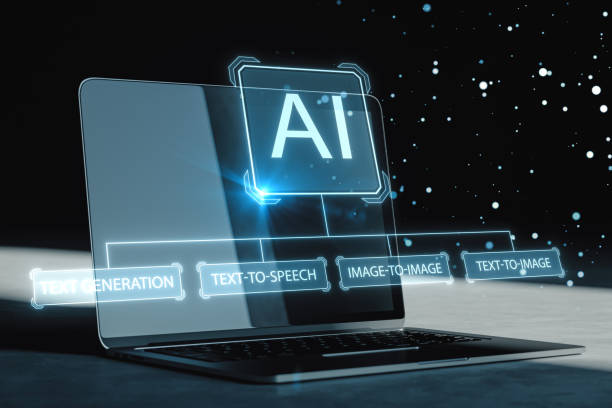
Instead of solely focusing on replacement, the dominant view regarding the future of AI jobs is shifting towards Human-AI Collaboration.
AI, as a powerful tool, can augment human capabilities rather than completely replace them.
This collaboration can manifest in various forms; from intelligent assistants helping doctors diagnose diseases to collaborative robots (cobots) in factories performing physical tasks alongside humans.
This approach provides an explanatory and analytical insight into how humans can leverage the power of AI to enhance their productivity, accuracy, and creativity.
Future jobs are likely to be transformed rather than eliminated, requiring new skills for managing and collaborating with intelligent systems.
This more positive outlook emphasizes the importance of adaptability and acquiring new skills for effective coexistence with technology.
Don’t have a corporate website yet and missing out on online opportunities? With professional corporate website design by Rasaweb,
✅ Double your business’s credibility
✅ Attract new customers
⚡ Free consultation for your corporate website!
Government Policies and the Future of Work
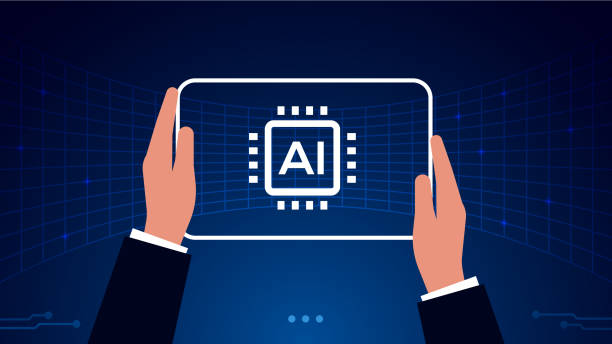
Governments play a vital role in shaping the future of AI jobs.
Intelligent policies can both maximize the opportunities arising from AI and manage its challenges.
This includes investing in AI research and development, creating necessary infrastructure, and developing reskilling and upskilling programs for the workforce.
Some countries are exploring new social support models like Universal Basic Income (UBI) to counter the possibilities of broader job displacement.
Additionally, establishing regulations and standards for the ethical and responsible use of AI is crucial to protect the rights of workers and citizens.
These topics are newsworthy and thought-provoking at the macro level and require a comprehensive national approach to prepare for future changes.
Ignoring these responsibilities can lead to deeper social and economic inequalities.
Conclusion and Future Outlook

The future of AI jobs is complex, multifaceted, and full of opportunities and challenges.
AI not only eliminates repetitive jobs but is also a driving force behind the creation of new job opportunities and unprecedented transformation in the labor market structure.
Success in this era requires flexibility, the ability for continuous learning, and a focus on human skills such as creativity, critical thinking, and emotional intelligence.
Governments, educational institutions, and businesses must collaborate to provide the necessary infrastructure and programs to prepare the workforce for this massive transformation.
With an analytical and guiding perspective, it can be said that the future belongs to those who see AI not as a threat, but as a powerful tool for enhancing human capabilities and creating new values.
The future of AI jobs will be bright if a smart and ethical approach is adopted.
Frequently Asked Questions
| Question | Answer |
|---|---|
| How will AI affect the future job market? | AI will automate repetitive jobs, but simultaneously create new and more complex roles in areas such as AI system development, maintenance, and training. |
| Which jobs are most at risk of being replaced by AI? | Jobs involving repetitive, rule-based tasks with low requirements for creativity or emotional intelligence, such as some manufacturing, data entry, and simple customer service roles, are most at risk. |
| What skills are essential for success in the future job market with AI? | Skills such as critical thinking, complex problem-solving, creativity, emotional intelligence, data literacy, the ability to work with AI, and lifelong learning are of high importance. |
| Will AI lead to widespread unemployment? | Some jobs will be lost, but history has shown that new technologies, instead of causing widespread unemployment, reshape the job market and create new jobs. The need for adaptation and reskilling is crucial. |
| What new job opportunities emerge with the advent of AI? | Jobs such as Machine Learning Engineer, Data Scientist, AI Ethicist, Human-AI Interaction Designer, and Digital Transformation Consultant are among the new opportunities. |
| What is the role of education in preparing for the future of AI jobs? | Education must focus on developing Soft Skills, computational thinking, digital literacy, and the ability for continuous learning to prepare individuals for future changes. |
| How can I prepare myself for the job market changes caused by AI? | You can prepare yourself by learning new skills related to AI and data, strengthening soft skills, developing critical and creative thinking, and embracing lifelong learning. |
| Will AI ethics become an important job field? | Yes, given increasing concerns about biases, privacy, and automated AI decisions, the role of AI ethics specialists will become crucial to ensure its responsible development. |
| What is the importance of human-AI collaboration in the future of jobs? | Human-AI collaboration, rather than competition, will shape the future of the job market. AI can be a tool to increase productivity and allow humans to focus on more complex and creative tasks. |
| Which industries will be most affected by AI? | Almost all industries will be affected, but fields such as healthcare, finance, transportation, manufacturing, education, and customer service are pioneers in adopting and being transformed by AI. |
And other advertising services of Rasaweb Advertising Agency
Smart Press Release: A specialized service for increasing website traffic growth based on real data.
Smart Sales Automation: Professional optimization to increase sales using SEO-driven content strategy.
Smart Social Media: A novel service for increasing digital branding through intelligent data analysis.
Smart Social Media: Professional optimization to increase click-through rates using precise audience targeting.
Smart Data Analysis: A professional solution for improving SEO ranking with a focus on intelligent data analysis.
And over hundreds of other services in internet advertising, advertising consultation, and organizational solutions
Internet Advertising | Advertising Strategy | Advertorial
Sources
AI in Zoomit
AI News in Digiato
AI in ISNA
AI Developments in Tabnak
? Is your business ready for a big leap in the digital world? Rasaweb Afarin Digital Marketing Agency, specializing in professional website design and offering comprehensive online marketing solutions, paves your path to growth and visibility.
📍 Tehran, Mirdamad Street, next to Bank Markazi, Kazeroun Jonoubi Alley, Ramin Alley, No. 6


